Oksana Garnets: “There is enough work for all donor structures in Ukraine”
How SKAT Foundation and DESPRO civil organization help destroyed Ukrainian towns and villages
Author: Dmytro Synyak
SKAT Foundation is a relatively small charitable foundation from Switzerland, that has been specializing on projects related to environmental protection, providing access to high-quality water, waste management, as well as providing various kinds of support to people who suffered from wars and natural disasters. Before the full-scale russian invasion, the foundation was mostly operating in Latin American and African countries, but since the last year it shifted its focus towards supporting Ukraine. Besides that, the foundation has been a long-term partner of SKAT Consulting, a large Swiss agency, specializing on implementation of international technical support projects. Since early 2006, SKAT Consulting implemented DESPRO project, funded by the Swiss Government, and contributed to launching of decentralization reform in Ukraine. Starting from the last year, SKAT Foundation, that is currently working on its own, was providing support to Ukrainian regions, which suffered from russian aggression, through a civil organization DESPRO, headed by president Oksana Garnets. Ms. Garnets told the Decentralization portal, who got the Swiss support, and how it was provided. The program coordinator of Skat Foundation Matthias Saladin also commented on Swiss assistance to Ukraine.
Does SKAT Foundation specialize on something particular in Ukraine? Who exactly can count on support from this structure?
- As SKAT Foundation’s support is oriented towards working directly for people, the foundation chose to focus on revival and improvement of healthcare services in the regions that suffered from the war. In such regions, healthcare infrastructure nominally remains in place, but, usually, its condition does not allow it to provide any services at all. A decision has been made to focus on Kyiv oblast, which was one of the first regions to meet the invasion and survive the occupation. Primarily, we should focus on the parts of oblast, which were physically under occupation. That is, in practice, we are talking about rebuilding of ambulance stations, medical and obstetric points, and small clinics that functioned in villages and small towns. We are closely cooperating with the All-Ukrainian association of amalgamated territorial communities and with authorities. They singled out two communities for us to take care of: Gostomel and Dmytrivka communities in Kyiv oblast. It was these two municipalities that were the first to suffer the attack of russian troops and had been under occupation for more than a month. The levels of destruction and the count of casualties are tremendous.
What exactly have you managed to accomplish in these communities?
- In Gostomel we worked not only on rebuilding of the central medical centre servicing the whole community, but also on revival of the family healthcare Centre in the village of Moshchun, that became the focal point of the battle for Kyiv during the first days of the invasion. The russians almost burned the place to the ground, destroying around 80% of residential buildings. So, when the russian troops withdrew from Moshchun, medical services were provided wherever possible: in the village council, in the library, or outside. As of now, before the end of summer we expect the village to have a new modern medical and obstetric centre. Its construction is sponsored by Kyiv oblast administration. Within SKAT Foundation’s project, we will equip the centre with all necessary medical materials and equipment. In general, the story of Moshchun is very inspiring: people have not abandoned their native land, and even though residing in temporary modular houses, they gradually rebuild the life, destroyed by russians.

Do other medical establishments of Gostomel community also get support from DESPRO and SKAT Foundation?
- At the first phase of our work, that started in July last year, we set a goal of reviving the activity of four healthcare establishments, providing Gostomel community with modern equipment, allowing specialists to diagnose serious illnesses at early stages, and, therefore, to start treatment in time. Gostomel ambulance station was used by occupants as a military object – a headquarters of occupation troops. Once they withdrew, all computer medical equipment was either destroyed or stolen.
Our first recipient was the Centre for primary medical and sanitary care in the town of Gostomel itself. We purchased a portable ultrasound diagnostics machine for the centre. So now the medics can bring it with them to villages of the community. It is an ultra-modern and expensive piece of equipment, allowing to diagnose oncological diseases at early stages. I am not sure whether many Ukrainian communities have such a “machine”. Earlier, when Gostomel did not have such complex equipment, local medics had to send their patients to Kyiv for diagnostics.
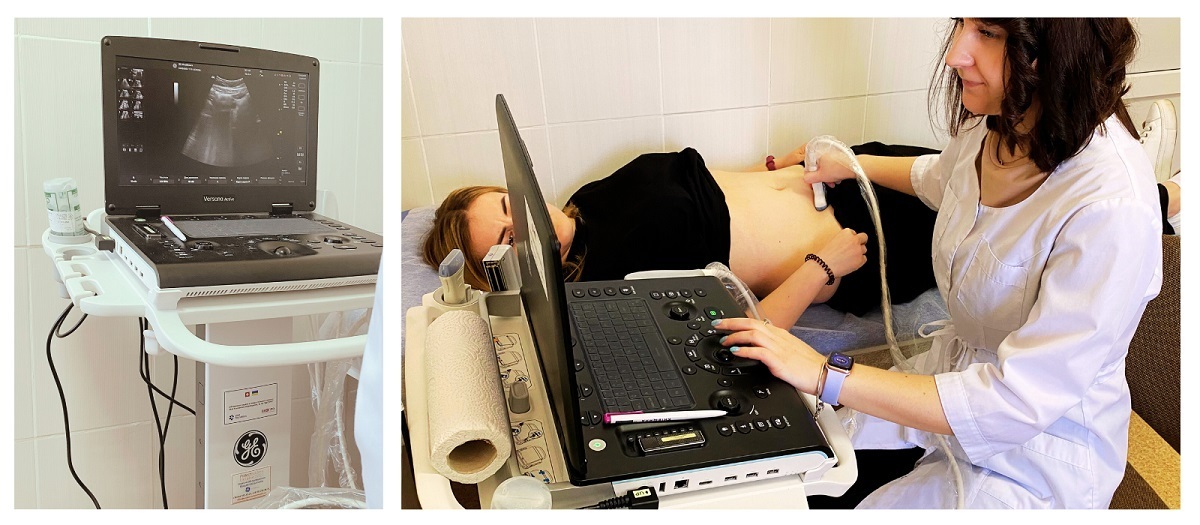
What have you managed to do for Dmytrivka community?
- Two objects were selected in Dmytrivka municipality: primary medical and sanitary care centres in the villages of Gurivshchyna and Shpytky. First, I should probably, mention the centre in Gurivshchyna. It was completely destroyed. Absolutely nothing remained on its place. Construction works were performed by Surkis Brothers foundation, while we “filled” this medical and obstetric point with medical equipment, furniture, a cardiograph, and other things which the medics needed for their work. We also contributed to heat insulation of the building of the raion hospital in Shpytky, which hosts both the ambulance station and daycare clinic. Presently, they plan to establish a rehabilitation centre there, because there is a high demand for both medical and psychological rehabilitation. After the occupation, people often find themselves in hard psychological condition. Additionally, the occupation resulted in an upsurge of neurological, gastroenterological illnesses, as well as musculoskeletal diseases such as arthrosis. Even sharp increase of oncological diseases might be a consequence of stressful experience. These facts further confirm the need for revival of healthcare infrastructure and services.
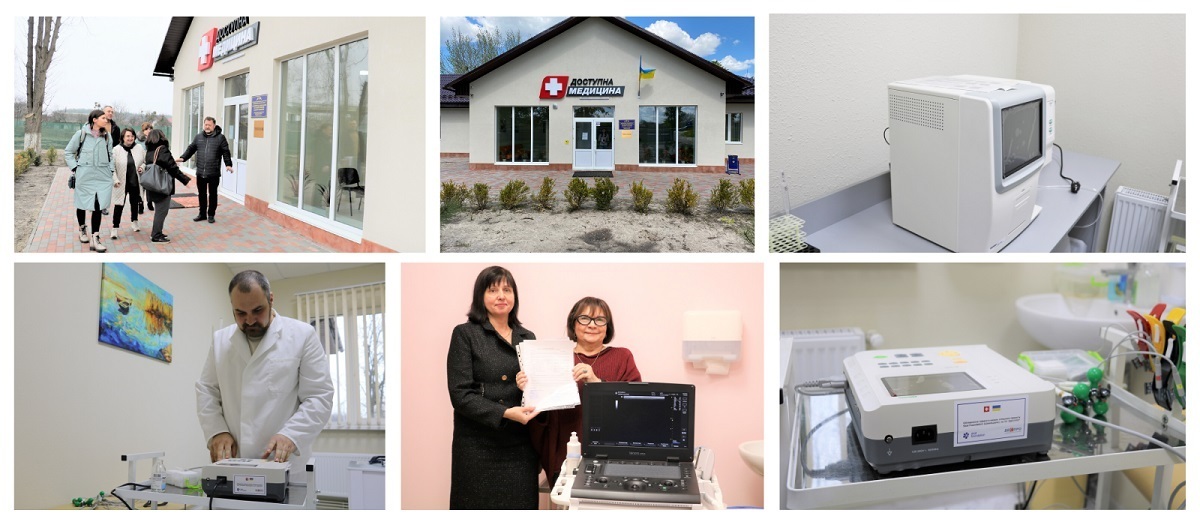
Where do SKAT Foundation funds come from?
- Initially we operated with donations from individuals and with the funds of the Foundation itself, which was supported by ordinary Swiss citizens. Starting from July this year, we are launching the next phase of operation. From now on, the work of DESPRO and SKAT Foundation will be sponsored by St.-Gallen canton in eastern Switzerland. During this phase, we have decided to keep on working in Kyiv oblast, because, first, there is still a lot of work to do within the scope of the project’s activities, and, second, it is unreasonable to disperse the efforts of our small team; additionally, by working close to Kyiv, we can minimize travel times. As a result, we chose the Borodyanka community. Its administrative centre and surrounding villages also suffered severe ruination during the combat, not to mention the occupation that lasted more than a month. We intend to join the efforts on reviving the ambulance station and two medical and obstetric points in the villages of Nove Zalissya, Shybene, and Druzhnya, where the healthcare services provision situation is especially problematic. Moreover, we have already started working in this direction, because, according to the conditions of grant provision, the canton of St.-Gallen can only transfer the funds until the end of this year. So, there is not much time left. However, preparation of budgets, evluation of needs, and other related processes are already under way.
Do DESPRO and SKAT Foundation plan to expand the scope of support provision by searching for new funding sources?
- Sure. We work with everyone who is open for cooperation. And we will keep looking for resources to continue working. Our Swiss partners rightfully assume that high-quality healthcare services should be available to people, no matter where they live: in a town or in a village, far from or close to large cities. If provision of these services has been terminated due to military action, then they should be restored in order to improve the quality of people’s life, and, therefore, their resilience to stressful experiences. Now this is very important.
What is the volume of support provided?
- More than 230 thousand Swiss francs or almost 10 million UAH. However, the number of beneficiaries of this support is counted in tens of thousands. We are talking about all residents of the communities, which we have assisted, who are using and will be using the healthcare services at their place or residence.
Does DESPRO already have plans for the next year?
- Jointly with SKAT Foundation we intend to expand our assistances; particularly, we want to organize training or re-training of healthcare personnel in partner communities. Presently, many medics have gone to war, and someone needs to replace them. Also, we want to strengthen the stream of psychological rehabilitation, which is now desperately needed by people, whose loved ones perished in the war, or returned from it with injuries. Unfortunately, there is hardly a person in Ukraine, who does not require psychological support. So, there is enough work for all the donors. Although currently our project is rather small, we hope that with time it will expand to a large-scale initiative, covering several regions. SKAT Foundation is already actively searching for new funding sources for it.
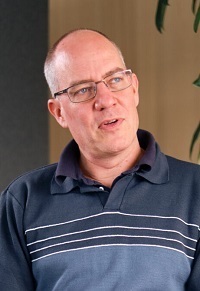 Matthias Saladin, International Programme Coordinator, Skat Foundation
Matthias Saladin, International Programme Coordinator, Skat Foundation
Why did Skat Foundation decide to support Ukraine and is further support planned?
In fact, this project emerged as a result of personal inclination of many Skat Foundation employees to Ukraine. We followed the activities performed by the team of the former DESPRO project (which is now DESPRO civil organization) in Ukraine during the last years, communicated with them, and supported their operations. That is why we want to help because of, so to say, personal considerations. Besides that, the team and the project, offered to the donors, managed to get a certain amount of funding, so we started working.
The direction of reviving healthcare services was chosen based on the evaluation of needs of territorial communities, which we conducted jointly with DESPRO and All-Ukrainian Association of amalgamated territorial communities. We asked the local self-government representatives, what the communities needed most, and where our help would be most useful. Having received the answers, we made a choice in favor of medical infrastructure rebuilding and revival of healthcare services provision in the territorial communities around Kyiv. We saw that this was a substantial need, and we could make a contribution with a targeted effect in minimum time.
As for future plans, now we are totally focused on the implementation of the project’s current phase, which will continue until the end of 2023. However, we are already holding negotiations with certain donors as to the possibility of expanding our support to Ukraine. Once we get definitive outcomes, we will immediately inform the public about them.
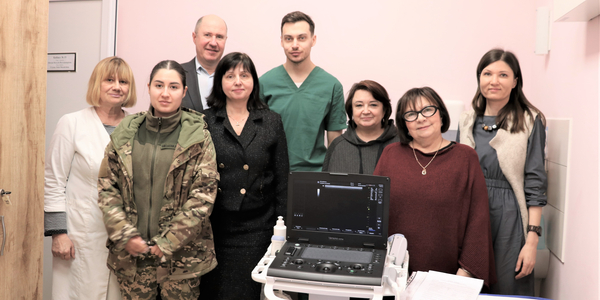
Tags:
international support O.Harnets report
Source:
Decentralization Initiative Press Centre
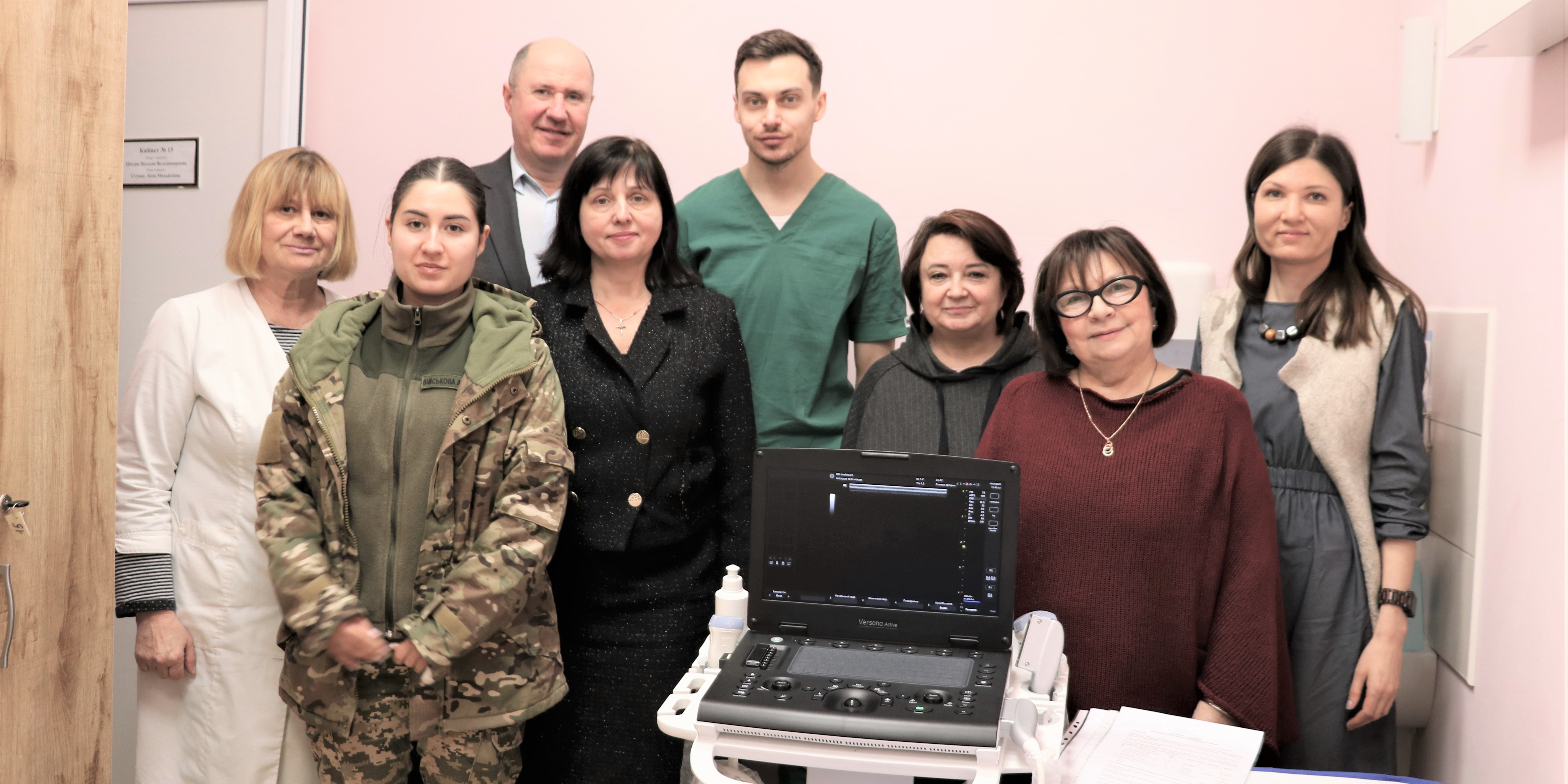
23 February 2026
Моніторинг громад – січень 2026
Моніторинг громад – січень 2026
Як змінюється стан справ у територіальних громадах? Як на їхню спроможність впливають безпекові умови в регіонах та...
23 February 2026
У Мінрозвитку обговорили пріоритети державної політики щодо тимчасово окупованих територій України
У Мінрозвитку обговорили пріоритети державної...
Під головуванням заступника Міністра розвитку громад та територій України Олексія Рябикіна відбулося обговорення...
23 February 2026
Відкритий діалог заради розвитку громад: які...
Публічні консультації, круглі столи, презентації досліджень, експертні зустрічі — Комітет Верховної Ради України з...
23 February 2026
Профорієнтувати, навчати та заробляти. У Васильківському коледжі створили сучасний кулінарний хаб
Профорієнтувати, навчати та заробляти. У...
Замість старих 40-літрових каструль – «кулінарний комп’ютер» iVario, замість радянської плитки – керамограніт і...